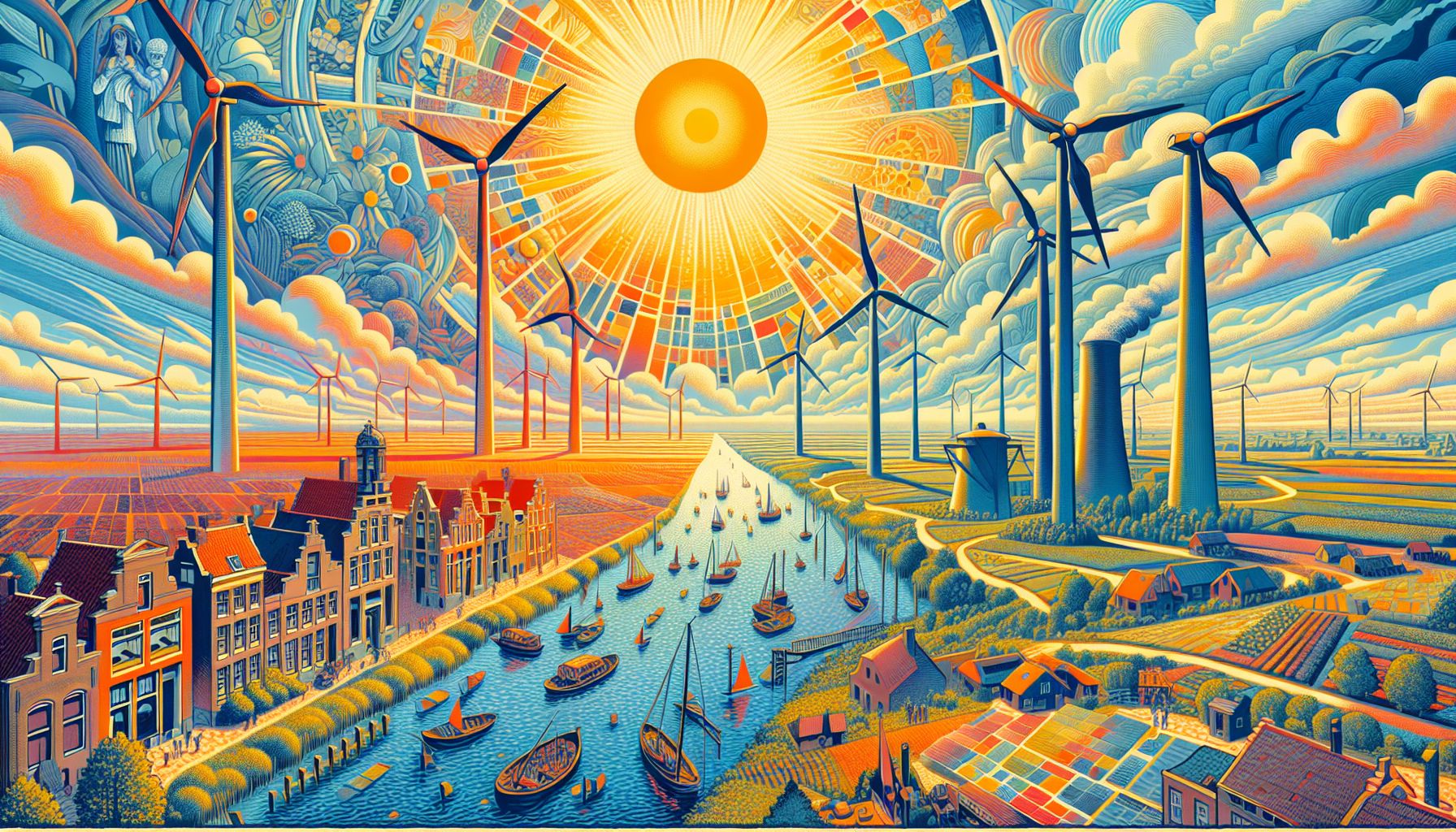Netherlands Faces Urgent Need for Solar and Wind Energy Expansion

Netherlands, Friday, 5 July 2024.
A new report underscores the critical need for increased solar and wind energy installations in the Netherlands to meet renewable targets and combat climate change. Despite progress, obstacles like grid congestion and space competition threaten the 2030 goal of 35 terawatt-hours from renewables.
Current Renewable Energy Landscape
In recent years, the Netherlands has made significant strides in generating electricity from renewable sources like solar panels and wind turbines. However, the progress report from the national bureau of the thirty energy regions highlights that these efforts are still insufficient to meet the ambitious targets set in the Dutch Climate Agreement. The goal of producing 35 terawatt-hours (TWh) of energy from solar and wind by 2030 is under threat due to several emerging challenges.
Challenges to Achieving Renewable Energy Goals
The report identifies critical obstacles including an overcrowded electricity grid, increasing competition for available land, and the implementation of new national environmental standards for land-based wind turbines. These challenges hinder the ability to scale up renewable energy production to the levels needed. Initially, the energy regions aimed to generate 55 TWh, but this target now seems unattainable by 2030 at the current pace.
Policy and Legislative Responses
In response to these issues, the Dutch Parliament has approved a comprehensive plan for the country’s energy system, emphasizing the need to scale up not only offshore wind and land-based renewable energy but also nuclear energy. However, the construction of new nuclear plants is a long-term solution, with contributions not expected until post-2035. This makes the immediate expansion of solar and wind energy even more crucial to meet intermediate climate goals.
Impact of Local Ownership on Renewable Projects
Efforts to achieve 50% local ownership of sustainable energy projects, aimed at involving citizens and local businesses in decision-making and financial benefits, have seen limited success. Many regions have struggled with this aspect, which is key to gaining local support for renewable energy installations. Community involvement is crucial as public opinion can significantly influence the implementation of new energy infrastructure.
Future Outlook and Recommendations
The report suggests that to meet future energy demands and climate targets, the generation of wind energy on land should double by 2050, while solar energy production should triple. Despite the challenges, there is a growing awareness and willingness among the public to support renewable energy projects, even if it means higher energy bills, provided the projects help prevent environmental harm. Initiatives for energy storage and grid improvements are also emerging, aiming to address net congestion issues pervasive in all regions of the Netherlands.
Bronnen
- www.rtlnieuws.nl
- www.britannica.com
- www.ft.com
- en.wikipedia.org
- cinea.ec.europa.eu
- www.britannica.com

